
OPAL for Public Data and Good

What?
OPAL is a data-powered decision and coordination support system for development and humanitarian interventions.
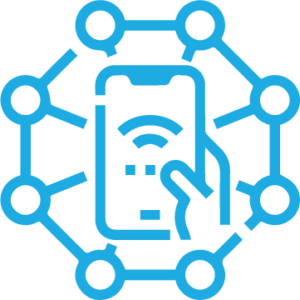
How?
The platform provides analysis, decisions, coordination, incident monitoring, task tracking, and real-time feedback for better impact management on specific Areas.
The modular Impact-Areas provide an additional layer within OPAL, enabling targeted analysis, coordination, and decision-making for specific sectors such as health, agriculture, infrastructure, and social inequalities.

Why?
The use of OPAL is essential in expanding Big Data’s social potential while ensuring inclusivity, particularly in humanitarian contexts. By enabling privacy-preserving access to sensitive datasets through a “send the code to the data” model, OPAL facilitates equitable data use without compromising individual privacy.
This approach allows governments, NGOs, and researchers to get insights that inform policies and interventions, reaching vulnerable and often overlooked populations. Unlike limited, ad hoc data access methods, OPAL offers a scalable, secure, and transparent framework that fosters trust and enables the design of humanitarian initiatives that leave no one behind.
Mission
OPAL exists to close the gap between information and action in humanitarian crises.
We work toward shaping technological, legal and ethical frameworks that keep sensitive, locally generated data in the hands of the communities it concerns, while putting it to work for the common good.
Concretely, OPAL equips responders with a trusted platform that:
- Integrates real-time, privacy-protected data from satellites, sensors, and community-participatory insights;
- Generates risks models and actionable recommendations through AI models;
- Automates routine alerts and task assignments, so teams can act faster; and
- Coordinates government, NGO and community efforts before, during and after a disaster.
By pairing responsible data governance with rapid, data-driven decision-making, OPAL empowers organizations to protect more lives, livelihoods and infrastructure.
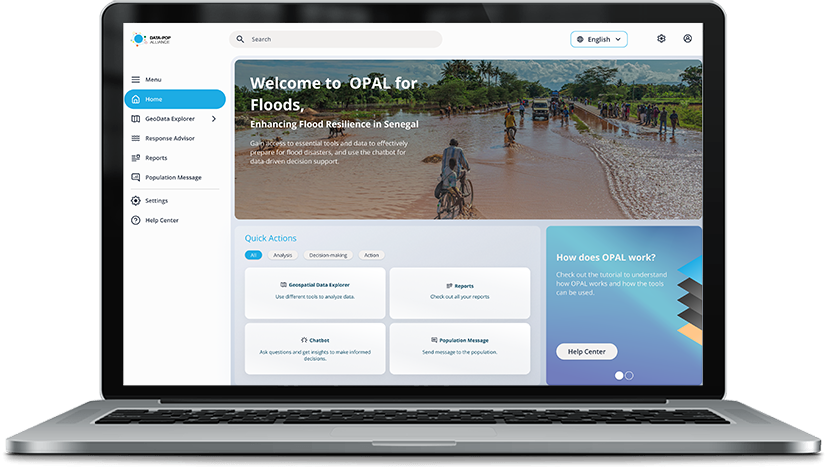
OPAL for Flood | Senegal Pilot
Every rainy season, large areas of Senegal’s river valley disappear under water, crippling harvests, uprooting families and eroding hard-won development gains. Globally, floods already cause US $105 billion in damage each year and force more than 20 million people from their homes. With climate change projected to drive a 20–40 % jump in flood frequency by 2050 (IPCC), the stakes for countries like Senegal—where agriculture remains the main livelihood for 46 % of households (Le Monde, 2025)—are only getting higher. Yet today’s flood-response systems are fragmented and reactive, hampered by siloed data and minimal real-time coordination.
OPAL for Flood turns that weakness into strength. Our platform ingests satellite imagery, different datasets, and community inputs, then uses machine-learning models to provide insights of where, when and whom flood might hit. The platform translate those insights into clear, shared action plans: alerting residents in real time, guiding local officials on how to respond (e.g., where to pre-position pumps or how to allocate cash transfers), and helping national agencies coordinate relief in real time.
By moving from after-the-fact reaction to AI and data-driven prevention and joint action, OPAL for Flood aims to safeguard lives, protect livelihoods and build lasting climate resilience.
Other countries in West Africa are being considered to pilot OPAL
for Floods.
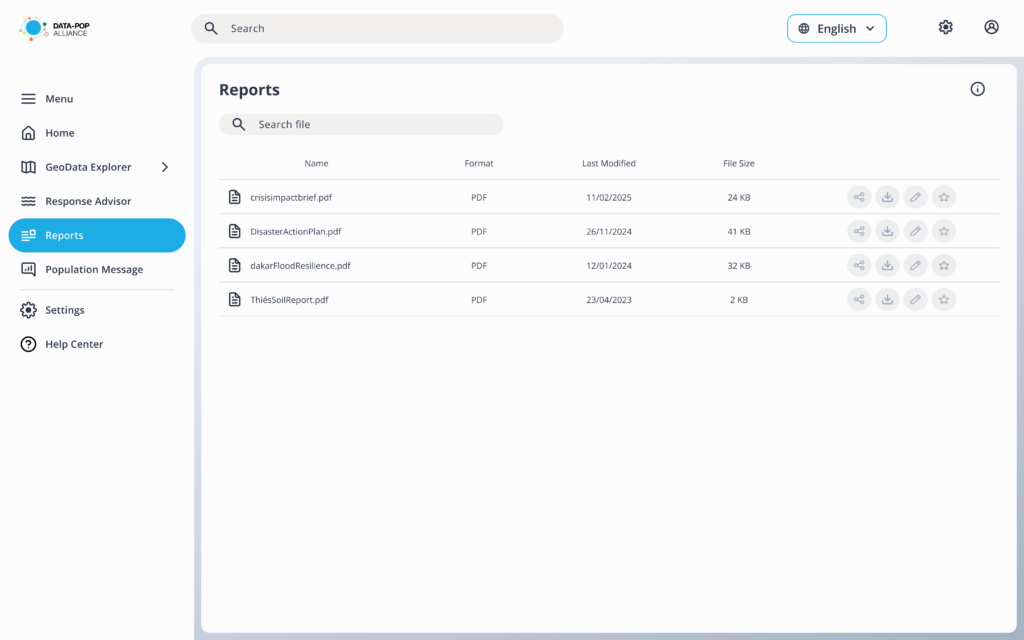
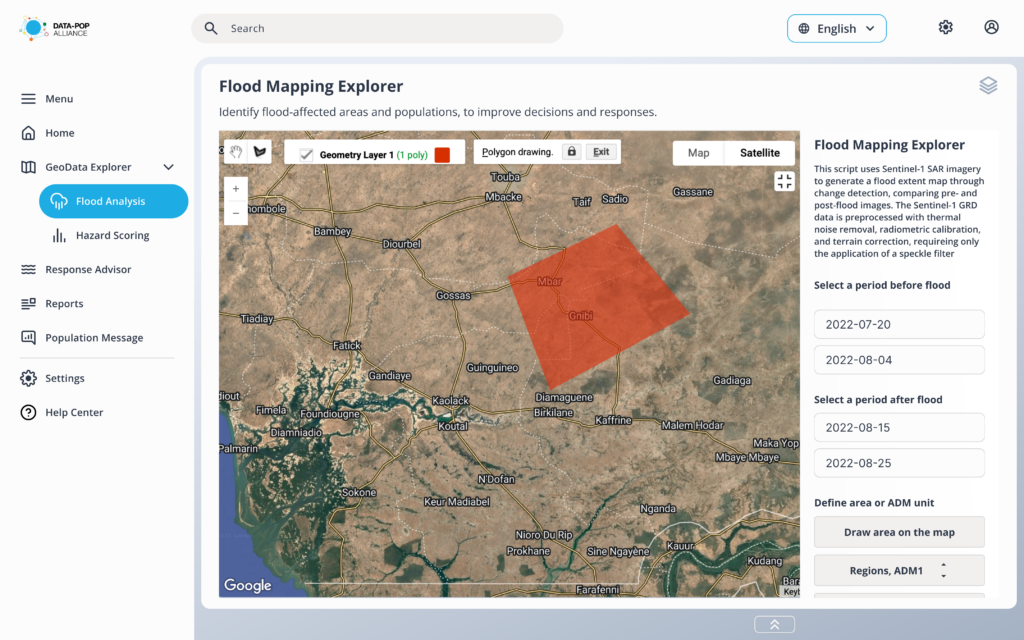
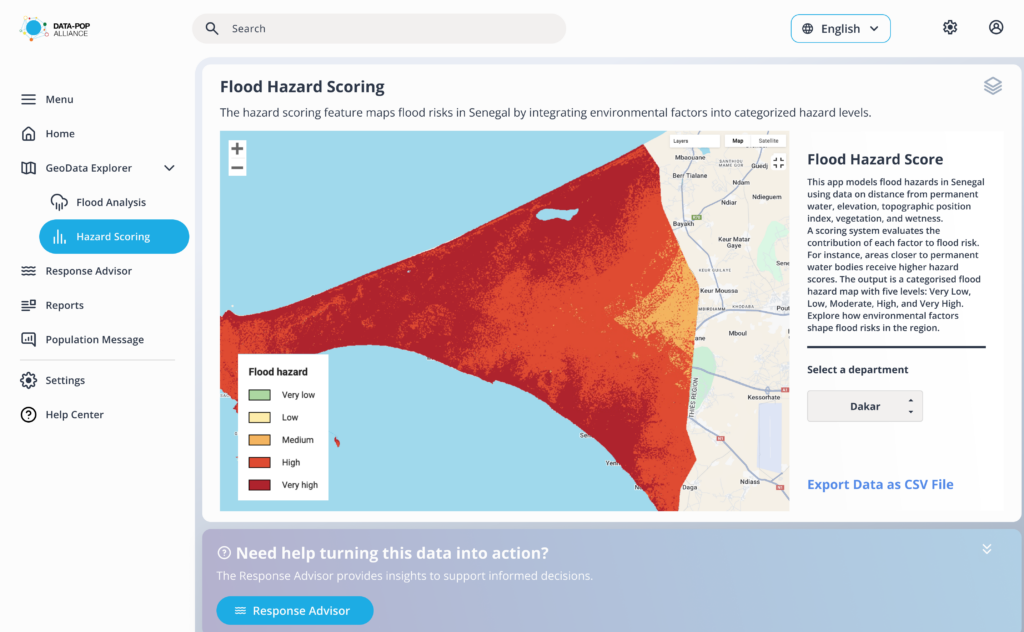
Supporting Organizations


Real World Applications
OPAL and its technology have already proven effective in a number of ongoing projects. A brief summary of these applications is as follows:

- Middle East and North Africa (MENA), Morocco
- August 2022 - October 2023
- Partner(s): Moroccan Ministry of Economy and Finance, UNDP Morocco (Funder)
This project, supported by UNDP Morocco and the Moroccan Ministry of Economy and Finance, aimed to improve official statistical methodologies by using Big Data, in order to improve the timeliness and reliability of progress towards the Sustainable Development Goals. Additionally, this project contributed to strengthening the Moroccan digital ecosystem by improving the design, implementation, and monitoring of fair public policies, and informing better investment decisions towards achieving g the SDGs. Our organization conducted a benchmark study and developed three pilot publications to monitor priority indicators for sustainable development in Morocco: mental health (target 3.4) using Google Trends data; water stress (indicator 6.4.2) using earth observation; and ICT skills (indicator 4.4.1) using data collected through an online survey in Facebook.
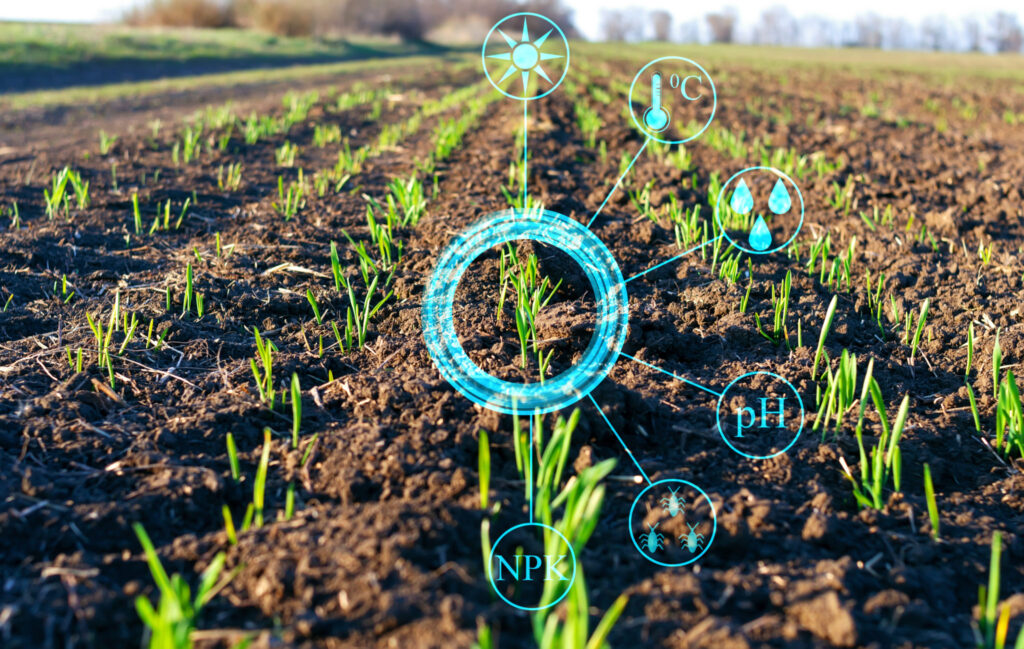
- Senegal, Sub-Saharan Africa (SSA)
- September 2023 - December 2025
- Partner(s): Belmont Forum (Funder), IDEMA, Initiative Prospective Agricole et Rurale (IPAR), Malmö University (MAU), Paris-Lodron-University Salzburg (PLUS), The Institute for Quantitative Social Science (IQSS) at Harvard University, Vrije Universiteit
Climate change (interlinked with humanitarian crises and other economic and health factors) could have led to internal resettlements, international migration, and other (new) forms of human mobility. However, the empirical link between various climatic conditions and migration outcomes was highly contested, and, to date, no unified theoretical approach had adequately captured the complexity and contextual dependency of climate-induced migration. To address this gap, CLIMB sought to develop a holistic approach which would allow a better understanding of the mechanisms and pathways underlying the climate-migration nexus, and to predict temporal-spatial mobility patterns in Africa and beyond. Specifically, we investigated how climate change might intersect with conflicts, poverty, and epidemics, among other adversities, and how these forces might operate in tandem in driving human migration, with a special focus on Africa.
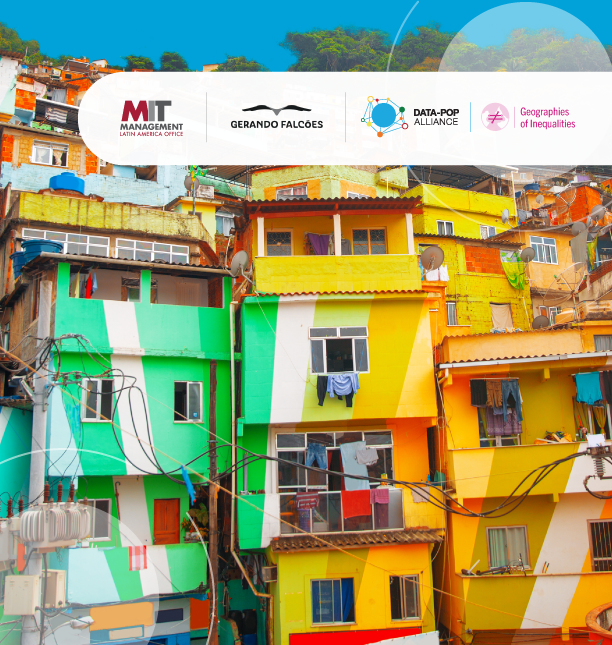
- Brazil, Latin America and the Caribbean (LAC)
- February - September 2023
- Partner(s): Gerando Falcões, MIT Sloan Latin America Office ( MSLAO) - (Funder)
Resources
Official Statistics and Big Data in Latin America: Data Enclosures and Counter-Movements
- Arruda d’Alva, O. and Paraná, Edemilson
- Journal Article
- 2024
This article examines how the expansion of Big Data in Latin America has often reinforced existing power asymmetries by enclosing data flows and centralizing control. It also highlights counter-movements advocating for equitable and democratized data ecosystems. The piece provides an important normative framework for OPAL’s approach—ensuring that data systems are inclusive, ethically governed, and aligned with community needs. OPAL builds on these principles by designing privacy-preserving systems that return agency over data to those it concerns.
